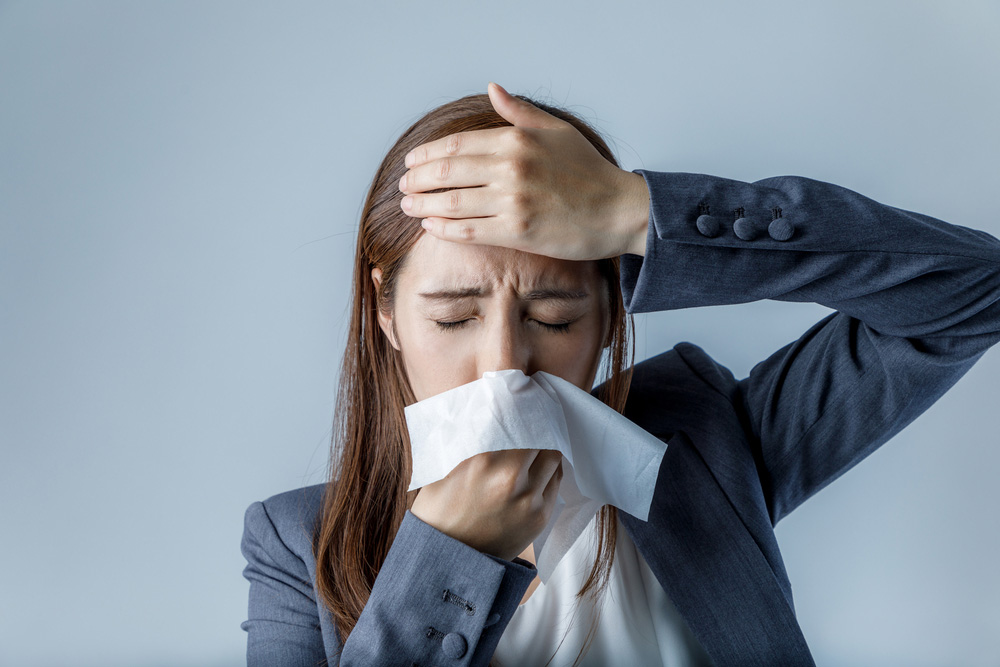
Allergic rhinitis is inflammation of the inside of the nose caused by an allergen, such as pollen, dust, mould or flakes of skin from certain animals.
It's a very common condition, estimated to affect around 1 in every 5 people in the UK.
Symptoms of allergic rhinitis
Allergic rhinitis typically causes cold-like symptoms, such as sneezing, itchiness and a blocked or runny nose.
These symptoms usually start soon after being exposed to an allergen.
Some people only get allergic rhinitis for a few months at a time because they're sensitive to seasonal allergens, such as tree or grass pollen. Other people get allergic rhinitis all year round.
Most people with allergic rhinitis have mild symptoms that can be easily and effectively treated.
But for some people symptoms can be severe and persistent, causing sleep problems and interfering with everyday life.
The symptoms of allergic rhinitis occasionally improve with time, but this can take many years and it's unlikely that the condition will disappear completely.
What causes allergic rhinitis
Allergic rhinitis is caused by the immune system reacting to an allergen as if it were harmful.
This results in cells releasing a number of chemicals that cause the inside layer of your nose (the mucous membrane) to become swollen and too much mucus to be produced.
Common allergens that cause allergic rhinitis include pollen (this type of allergic rhinitis is known as hay fever), as well as mould spores, house dust mites, and flakes of skin or droplets of urine or saliva from certain animals.
Treating and preventing allergic rhinitis
It's difficult to completely avoid potential allergens, but you can take steps to reduce exposure to a particular allergen you know or suspect is triggering your allergic rhinitis. This will help improve your symptoms.
If your condition is mild, you can also help reduce the symptoms by taking over-the-counter medications, such as non-sedating antihistamines, and by regularly rinsing your nasal passages with a salt water solution to keep your nose free of irritants.
See a GP for advice if you have tried taking these steps and they have not helped.
They may prescribe a stronger medication, such as a nasal spray containing corticosteroids.